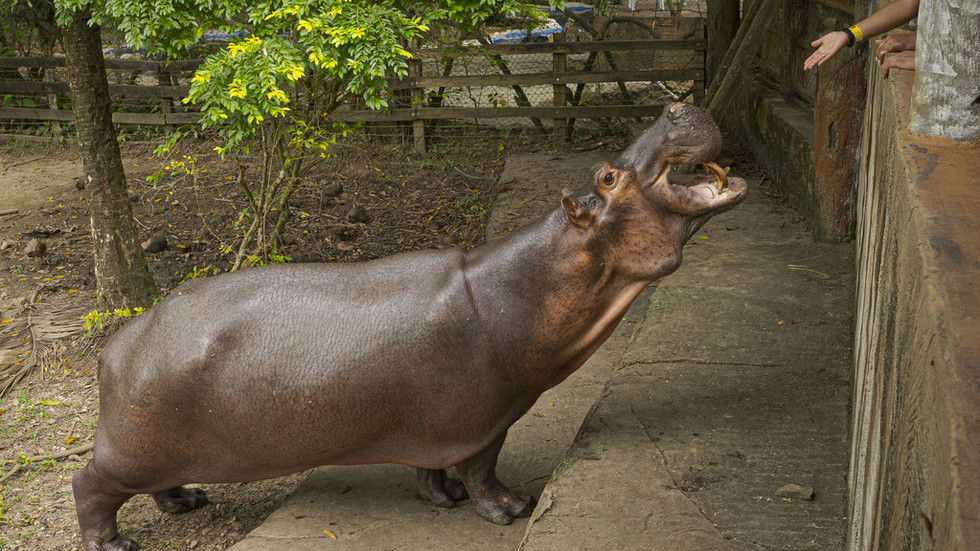
Hippopotamuses descended from the menagerie of Colombian cocaine baron Pablo Escobar are considered an invasive species

© Getty Images / Luis Bernardo Cano
A hippopotamus descended from the inhabitants of cocaine kingpin Pablo Escobar’s private zoo has died after it was struck by an SUV while crossing a highway in northwestern Colombia, environmental authorities told the Associated Press on Wednesday.
One of the hundred-plus hippopotamuses now roaming the Colombian countryside, the beast expired almost immediately after the collision, which left the vehicle’s occupants unharmed.
Escobar imported several hippos from an American zoo in the 1980s, adding them to the collection of kangaroos, giraffes, elephants and other exotic beasts he kept at his estate Hacienda Napoles. The menagerie was turned into a tourist attraction after the drug baron was killed in a shootout in 1993, and while many of the animals have since been relocated, the hippos – too large and unruly to move easily – have simply multiplied.

Read more
With no natural predators, they can be found roaming the countryside – and the surrounding highways.
“This is one of the many dangers that the presence of this species represents,” David Echeverri Lopez, a biologist with environmental authority Cornare, told the AP, explaining that “many of them cross the highway where many vehicles pass.”
“It is also a danger to people,” he said, noting “hippos are unpredictable, at any moment they can attack a person.”
The creatures, which can grow to over 2 tons in weight, were declared an invasive species in Colombia last year, and their number is estimated at about 130. Environmental officials fear there could be more than 400 hippos lumbering through the Colombian countryside in eight years, noting that their free movement and defecation in local rivers could change the composition of the waters and endanger other wildlife that call the area home, like manatees.
However, sterilizing the hippos is enormously expensive, running upwards of $8,000 per hippo, and local opposition to killing them is intense. Echeverri Lopez told the AP they have so endeared themselves to locals that it may be impossible to impose such a final solution. An ecologist who authored a 2021 study warning the hippos’ unchecked multiplication could severely harm the area’s biodiversity and cost human lives told the AP that people rejected her conclusions, calling her a “murderer.”




